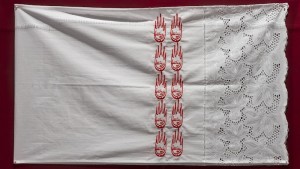The evening news is often a dance of fact and fiction, the truth twirling somewhere in between two or more expertly crafted fantasies. In recent months, the Russian government and media have executed mixed performances, convincing world leaders Russia had no plans for annexing Crimea and proposing foolish theories for the downed Malaysia Airlines Flight 17.
M.I.R.: Polite Guests from the Future, Russian artist Arseniy Zhilyaev’s solo exhibition at the Kadist Art Foundation, seems to draw direct inspiration from the absurd but occasionally persuasive allure of Vladimir Putin and his mouthpieces. The conceptual exhibition is forthrightly a farce; it is presented as the future and otherwise non-existent Museum of Russian History, which memorializes the also non-existent Russian Cosmic Federation.
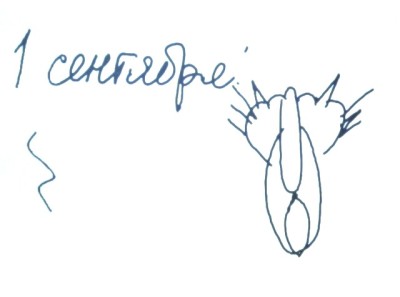
The premise of Polite Guests from the Future prepares viewers for untruths, but anticipating deception does not curtail confusion. One of the exhibition’s rooms is dedicated to Putin’s artistic practice and his influence on contemporary (ancient from the exhibition’s perspective) art and culture. A crude, black and white drawing is presented as an original work of art from Putin. Curator Pete Belkin explained that while visiting a middle school, Putin drew the piece on a whiteboard. As he was leaving, a student asked what the image was and the eccentric Putin replied, “It’s a cat — the rear view.” It turns out this is not some cosmic lie but indeed a true story.
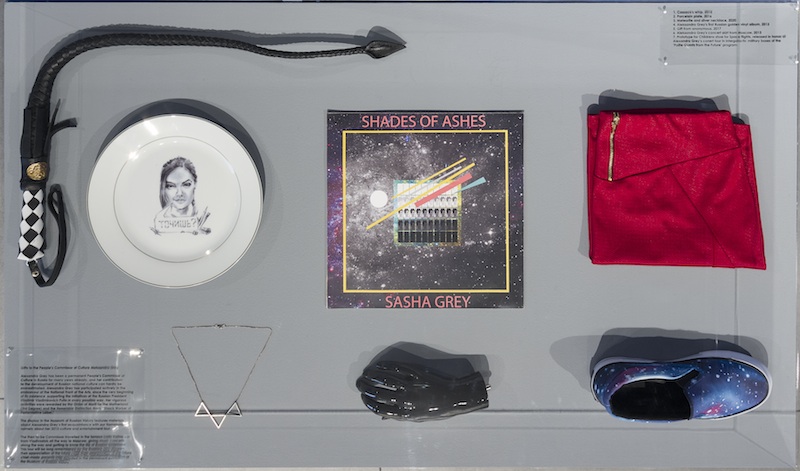
A section of the same room is devoted to the permanent “People’s Commissar of Culture,” Aleksandra Grey, a reference to American porn actress Sasha Grey (Sasha is the diminutive form of Aleksandra). In addition to her pornographic work, Grey is known for a starring role in Steven Soderbergh’s The Girlfriend Experience. As a former member of industrial band aTelecine, author of a novel and a photo book, Grey is a true renaissance woman worthy of the People’s Commissar of Culture title. A display case documents Grey’s historical importance with a meteorite necklace dated 2020, an Aleksandra Grey commemorative plate from 2016, and a 2013 vinyl album cover, the existence of which could only be disproved with further research.
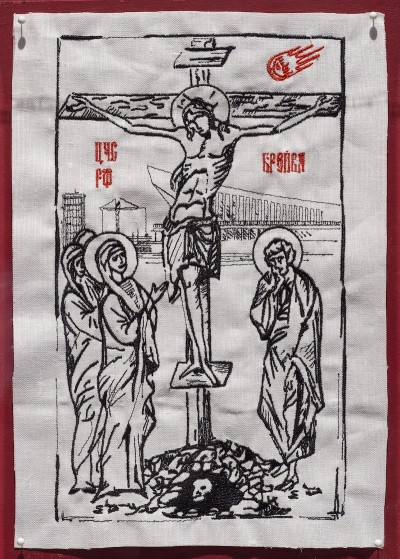
embroidery. Collection of the Museum of Russian History. Photo by Phillip Maisel. Courtesy Kadist Art Foundation.
The uncertainties grow after entering the room dedicated to the Chelyabinsk meteor of 2013 and the cult that has risen around it. Belkin acknowledged that the meteorite on display in the center of the gallery is not the Chelyabinsk meteorite, but a substitute from elsewhere. However, all meteorites now have sacred significance in the new official Russian religion. I wondered if it was really a meteorite. Can you just buy one on eBay? (Yes, you can.) I also questioned the authenticity of the textiles and texts associated with the cult, not sure whether they are reproductions of something real or completely conjured by Zhilyaev’s imagination. I didn’t ask, because not knowing was more fun than pinning down the elusive truth, at least until I got home and researched everything.
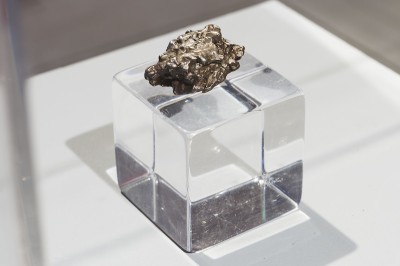
In an associated performance at the Kadist on July 23, artist Larry Bogad asked pairs of audience members to make a set of authoritative poses and oppositional poses, such as picking the nose of someone raising their fist in anger. Bogad explained that when faced with authority there is always some gesture one can make to undermine that authority. By dispensing with historical fact and fostering ambiguity and confusion, Zhilyaev created an exhibition that peeks through the veneer of Russian nationalism and illuminates the personalities, the idiosyncrasies, and the spectacles that make up the history we consider real.
